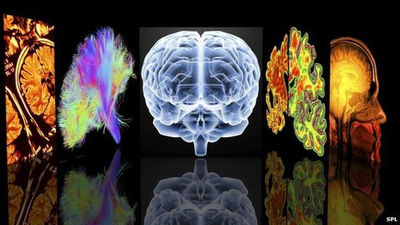It has been pointed out that intestinal bacteria may cause vision loss, and antibiotics may be able to stop vision loss.

There are many factors that can cause vision loss or vision loss, such as
CRB1-associated retinal degeneration is dependent on bacterial translocation from the gut: Cell
https://www.cell.com/cell/abstract/S0092-8674(24)00108-9
Surprising Link Found Between Gut Bacteria And Vision Loss : ScienceAlert
https://www.sciencealert.com/surprising-link-found-between-gut-bacteria-and-vision-loss

Blindness from some inherited eye diseases ma | EurekAlert!
The CRB1 gene expressed in the retina is thought to help build the 'blood-retinal barrier' that regulates substances entering and exiting the eyeball. Mutations in the CRB1 gene increase the risk of developing inherited eye diseases such as retinitis pigmentosa and Leber's congenital amaurosis .
In eye diseases associated with mutations in the CRB1 gene, the thin layered structure of light-sensitive photoreceptor cells in the retina is unable to develop, causing it to become abnormally thick, leading to decreased or lost vision. In previous studies , the researchers found that patients with CRB1-related eye diseases had abnormally high numbers of bacteria in their eyes, leading them to speculate that the bacteria may damage the retina, leading to vision loss. I did.
The research team conducted a new experiment using mice and revealed that the protein derived from the CRB1 gene, which was previously thought to exist only in the brain and retinal pigment epithelium , is also present in the intestinal wall. The CRB1 protein plays an important role in maintaining a barrier to fight pathogens and harmful bacteria and maintain internal health. On the other hand, if there is a mutation in the CRB1 gene, the CRB1 gene is not expressed sufficiently and the protective barrier is broken.
According to the research team, in mice in which the CRB1 gene was intentionally mutated, intestinal bacteria were able to cross the ruptured barrier and enter the retina through the bloodstream, causing lesions that impair vision. . On the other hand, by administering drugs such as antibiotics to these bacteria, it was possible to prevent further vision loss in the mice. It has been reported that the damaged barrier did not recover even after antibiotics were administered.

Inherited eye diseases are common causes of blindness. Although the onset of the disease varies from childhood to adulthood, the loss of vision is irreversible and has lifelong consequences. Traditional research into inherited eye diseases has focused primarily on gene therapy.
This study suggests that simply using antibiotics, such as antibiotics, may be able to prevent the worsening of inherited eye diseases associated with CRB1. ``We found that there is a previously unexpected connection between the gut and the eyes, which may be a factor in blindness in some patients,'' Lee said. .

'Our findings could have major implications for transforming treatment in CRB1-related eye diseases,' said Lee. 'We have also carried out this research in human clinical studies to demonstrate that this mechanism is We would like to confirm whether this is indeed the cause of blindness in humans, and whether antibiotics, a treatment that targets bacteria, can prevent blindness.' 'Now that we have uncovered a completely new mechanism that connects the gut, we hope to conduct further research that could impact a wider range of eye conditions.'
Related Posts:
in Science, Posted by log1r_ut







